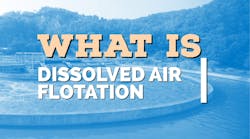The National League of Cities (NLC) applauds the action by Congress to adopt an Energy bill that rejected offending language that would have imposed a multi-billion dollar not funded mandate on local governments by preventing municipalities from suing the producers of the gas additive, Methyl Tertiary Butyl Ether (MTBE), a major contaminate of drinking water. NLC successfully lobbied for new language that preserves the ability of cities to bring their legal suits in state court and while permitting MTBE producers to request that their cases be heard in federal court.
"NLC and its coalition partners applaud the efforts of a bipartisan group of House and Senate leaders who rejected this onerous proposal," said NLC President Anthony A. Williams, mayor of Washington, D.C. "Cities will continue to have the ability to recoup the clean-up costs directly from the polluters."
The action is a major victory for taxpayers and for the NLC, which worked fiercely on behalf of cities and towns across America to protect their rights to seek damages for the clean up of drinking water sources polluted by MTBE—costs estimated in the range of 25 to $85 billion. During the past two years, NLC opposed numerous efforts by the House to limit the liability of MTBE producers—efforts that would have ultimately passed along billions of dollars in cleanup costs to the taxpayers. MTBE has been known to contaminate large quantities of surface and groundwater through leaking underground storage tanks and pipelines to ground and surface water. More than 28 states have detected MTBE contamination in their water supply with the most extensive contaminations found in California, New England and the Mid-Atlantic states.
In April, the House of Representatives included the MTBE provision in its version of the Energy bill over the objections of local governments, water utilities, and the Senate, which had twice rejected the language under the threat of filibuster. Most recently, NLC and coalition partners worked to defeat a deal brokered between House Energy and Commerce Chairman Joe Barton (Texas) and Rep. Charles Bass (New Hampshire) that would have invalidated any MTBE-related lawsuit filed by localities since September 5, 2003, with the exception of Bass' home state, which would have retained the right to sue. The Barton-Bass deal would have also preempted the ability of states to ban MTBE, forced all claims into federal court, and placed a financial cap on the amount that cities and water utilities could collect from the MTBE producers.
"The earlier House MTBE-liability waiver protecting MTBE producers would have been the 'mother of all not funded mandates'," said Donald J. Borut, NLC executive director. "We would have seen a billion-dollar bailout for many of the same oil and gas industry suppliers who are now seeing record profits."
MTBE came under common use following the adoption of the Clean Air Act Amendments in 1990. Court suits brought by states and localities against MTBE manufacturers have already resulted in settlements of more than $320 million in California and Texas, and more than 100 other cases are outstanding. In one of those lawsuits, documents produced in the trial proved that MTBE producers have known since the late 1980s that MTBE contaminated the water supply and knew it was enormously expensive to clean up.
Source: National League of Cities

